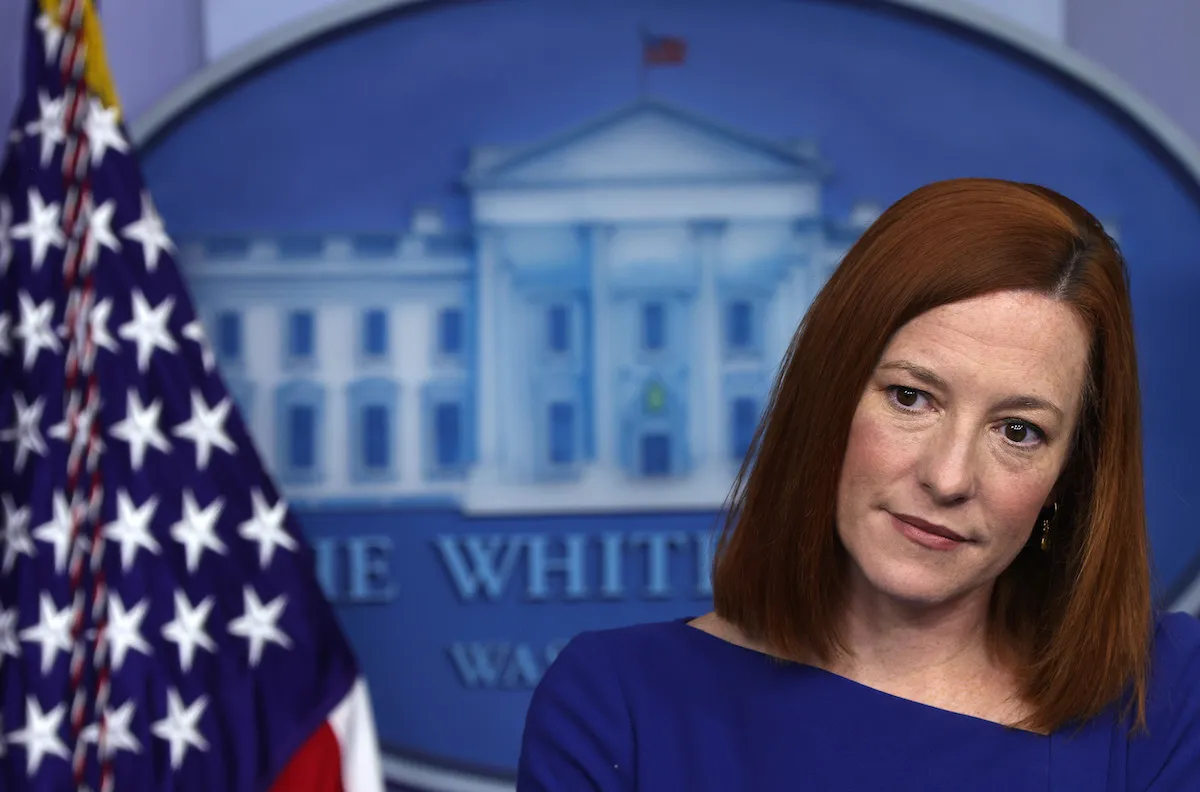The New York Daily Post writes:
White House correspondents erupted in protest Monday after an Associated Press reporter signaled press secretary Jen Psaki to pull the plug on the daily briefing before others had a chance to ask a question.
“Thanks, Jen,” the AP’s Josh Boak told Psaki 39 minutes into the Q&A period, indicating that time was up even as another reporter shouted a question about whether the US intended to get oil from Venezuela.
Although the briefing lasted for nearly 40 minutes, that time was taken up by three reporters in the first two rows asking multiple questions and follow-ups.
That paints quite a fascinating scene, with reporters yelling at each other, but I’m stuck on the fact that the reporter from the Associated Press dismissed Psaki and ended the meeting. That seems very strange! How and why does Boak have that power?
As it turns out, that’s just how things work.
An article from the Washington Post explained in a piece last year, just a few weeks after Biden took office and Psaki began briefing the press on his administration’s agenda:
White House press secretary Jen Psaki ended Tuesday’s press briefing with a quick exchange: “Thank you, Jen,” said Josh Boak, a White House reporter for the Associated Press. “Great,” replied Psaki. Then she put on her mask and headed out.
Those four words signaled the resurrection of an old White House briefing room tradition — observed under both Democratic and Republican administrations — in which the press secretary awaits the nod of the attending AP reporter before closing the book. (The privilege was initially assigned to the senior wire correspondent, but it eventually turned into an exclusively AP role.) Whereas her predecessor, Kayleigh McEnany, often ended briefings with scripted attacks on the media, Psaki has embraced a custom that accords the media a voice in the management of the briefing room.
It makes total sense that none of Trump’s many press secretaries would want to let the press have any control over their briefings, and the symbolic gesture to restore that power is right on brand for Psaki and Biden.
However, it’s clear this system is not without its flaws. As that Post article explains, “The procedure vests a fair bit of power in a single correspondent, who risks permitting the press secretary’s exit before everyone has had a chance to ask a question.”
And that’s what happened this week that led to such a commotion. As noted above, during the 40-minute briefing (which involves Psaki delivering news to the reporters, with time for questions left at the end), only three reporters were able to ask questions, and (or rather because) each of those reporters asked multiple questions and follow-ups during their time.
The reporters’ briefing room seats are assigned by what sounds like a mix of seniority, prominence of publication, and plain old-fashioned politics. All three reporters who were able to ask questions on Tuesday were seated in the first two rows, which might give off a feeling of elitism amongst those sitting farther back—none of whom are exactly newbies; some of them have been covering the White House for decades.
Making things worse, Boak himself was one of the reporters able to ask multiple questions before cutting things off. He told his colleagues that he knew there was a hard-out time for the briefing (something he did not share with the group beforehand), but he still took up more than his share of time.
From the Post:
“If you knew you had an out, then why don’t you guys limit yourself to one topic?” Halkett of Al Jazeera said from her seat in the sixth row.
“You don’t think we all have assignments? We don’t have editors? We don’t have deadlines?” she asked.
From the fifth row, Sweet chimed in: “Right, if you agree on the out, why don’t you organize yourself on how you conduct yourself during the briefing?”
Sweet added that Psaki or her deputy Karine Jean-Pierre is capable of ending the briefing on their own and that the tradition of the AP calling the briefing should end.
“I understand all the traditions that we have,” said Sweet, who has been covering the White House since the early 1990s. “Maybe it’s time to end the tradition. And Jen and her colleagues are fully capable of saying, ‘I’ve got to go now.’ And let’s just end it. No one deserves to have to feel that responsibility.”
Ultimately, this feels like a nice symbolic tradition that has probably run its course and needs to end before causing further divisions between news outlets. In the meantime, at least we learned something new!
(image: Alex Wong/Getty Images)










Published: Mar 10, 2022 05:57 pm